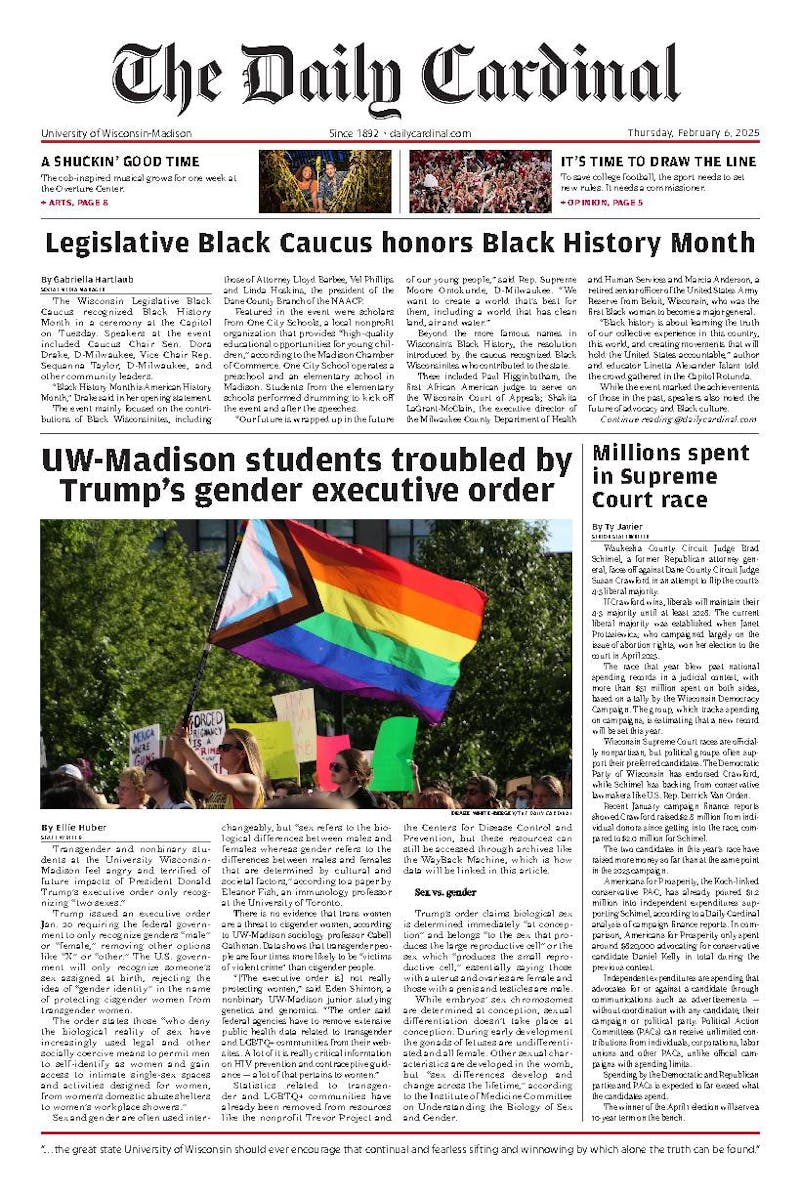On Sunday, I had some work to do. I decided to flee my responsibilities by going on a little adventure. I planned to ascend into the stacks at Memorial Library, find an interesting (or amusing) book and locate a chair up there to sit in while figuring out what the book I had picked up was all about.
Unfortunately, the first place I looked was 3M, the North Stacks. The only book I wanted to know more about on that entire floor was one with the word ""torment"" in the title. Everything else was about money. I have adopted M.I.A.'s stance toward money: ""I hate money 'cause it makes me numb.""
So, I went down to the North Stacks of floor 3 (as opposed to 3M). This floor mostly had books about sociology. Sociology interests me, but it also makes me want to kill myself because ""society"" seems so fucking hopeless. It appears to me I can make no relevant impact upon it.
Nonetheless, I chose a book entitled ""Getting Medieval: Sexualities and Communities, Pre- and Postmodern"" by Carolyn Dinshaw. My thoughts: ""Getting medieval? What does that mean? Pre- and postmodern sexualities? I like putting the present in the context of history""
I mistakenly assumed ""sexualities"" meant ""sexuality."" Silly me. ""Sexualities"" means hetero- to homosexual and everything in between, as the book quickly reminded me.
I learned that in England in 1395, some religious folks called the Lollards posted a document called ""The Twelve Conclusions"" on the doors of Westminster Hall. In this document, they referred to the English authorities (mainly the priesthood) as a bunch of idolaters. The main form of idolatry, according to the Lollards, was sodomy (that is, buttsex).
According to the Lollards and 1390s English pop culture, sodomy was idolatry because the point of sodomy is bodily pleasure and not dutiful procreation. They thought God didn't want people to have sex for pleasure!
The title of the chapter about the Lollards is ""It takes one to know one: Lollards, sodomites, and their accusers.""
The next chapter discusses the arrest of a prostitute who seemed to be a woman but had male equipment. The following quote appears on page 116: ""John/Eleanor Rykener's story, recorded in late 1394 in the London Plea and Memoranda Rolls—six or seven weeks before the Lollards posted their conclusions—reads like a nightmare of the Lollard imagination. This cross-dressed prostitute who had had sex with so many clerics s/he couldn't remember them all confirms the Lollards' lowest expectations of the prelacy [the priesthood].""
One of the purposes of ""Getting Medieval"" is to unearth a history for homosexuality, or, as it is often referred to by members of the gay community, ""queer history."" The purpose of unearthing queer history is to give gays and lesbians a past that starts before the 1960s. Yes, same-sex couples existed in the middle ages. Young gays and lesbians should know about ""pre-modern sexualities,"" because then they will not feel so marginalized, unappreciated and inhuman.
The beginning of ""Getting Medieval"" is what ultimately hooked me into investigating this book: a quote by Friedrich Nietzsche. He says, ""We need history for life and action, not as a convenient way to avoid life and action, or to excuse a selfish life and cowardly or base deeds.""
In other words, history is for learning more about ourselves so that we can make the best decisions possible. History is not an excuse to resign ourselves (""It's always been fucked up, so fuck it!""). Also, history is not a justification for the perpetuation of wrongs (""Gays and lesbians have always been treated like dogs or aliens, so why wouldn't I treat them that way too?"").
I'm sure homosexuality was what Nietzsche was thinking about when he wrote that quote.
Comments for Angelica? E-mail them to aengel2@wisc.edu.





